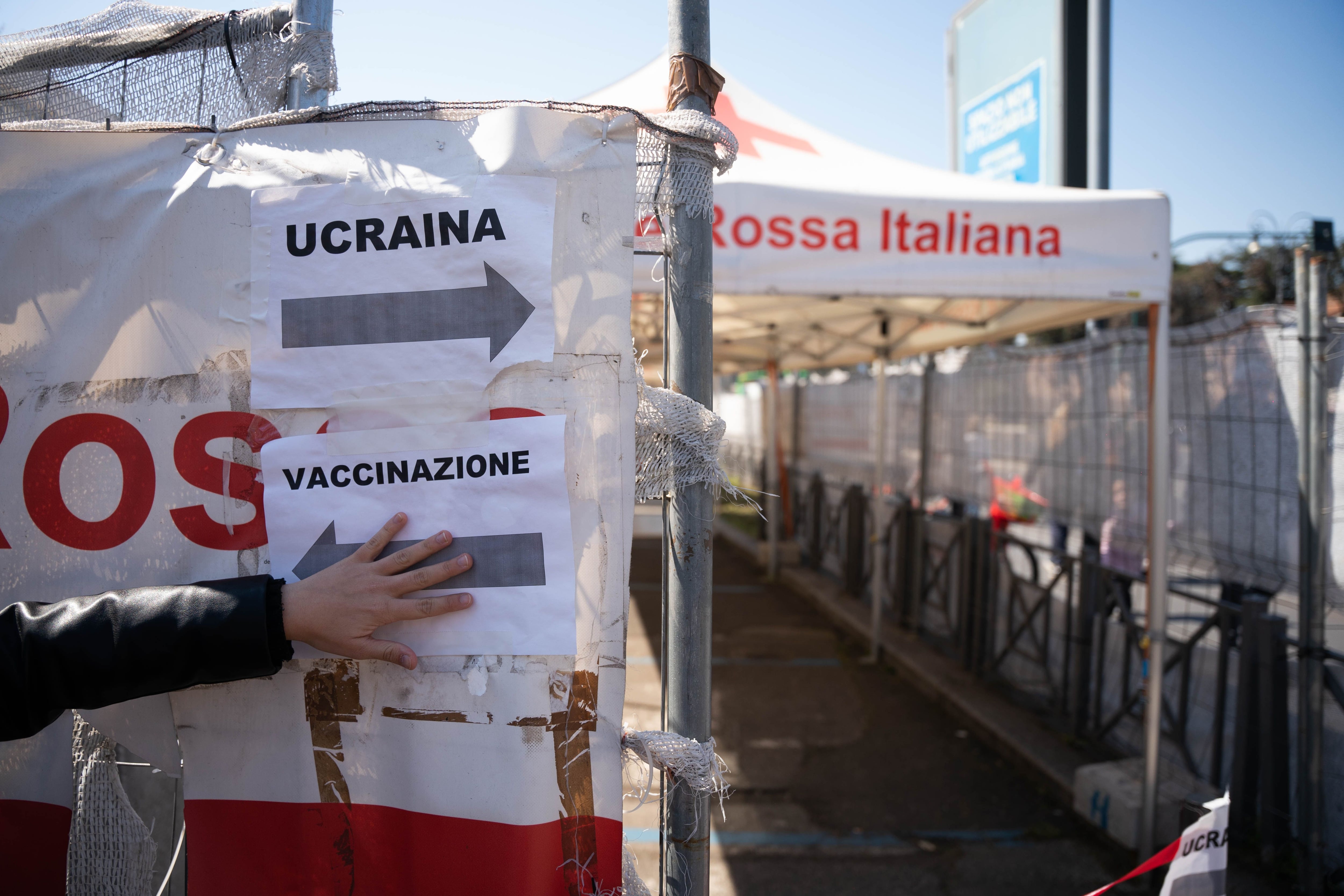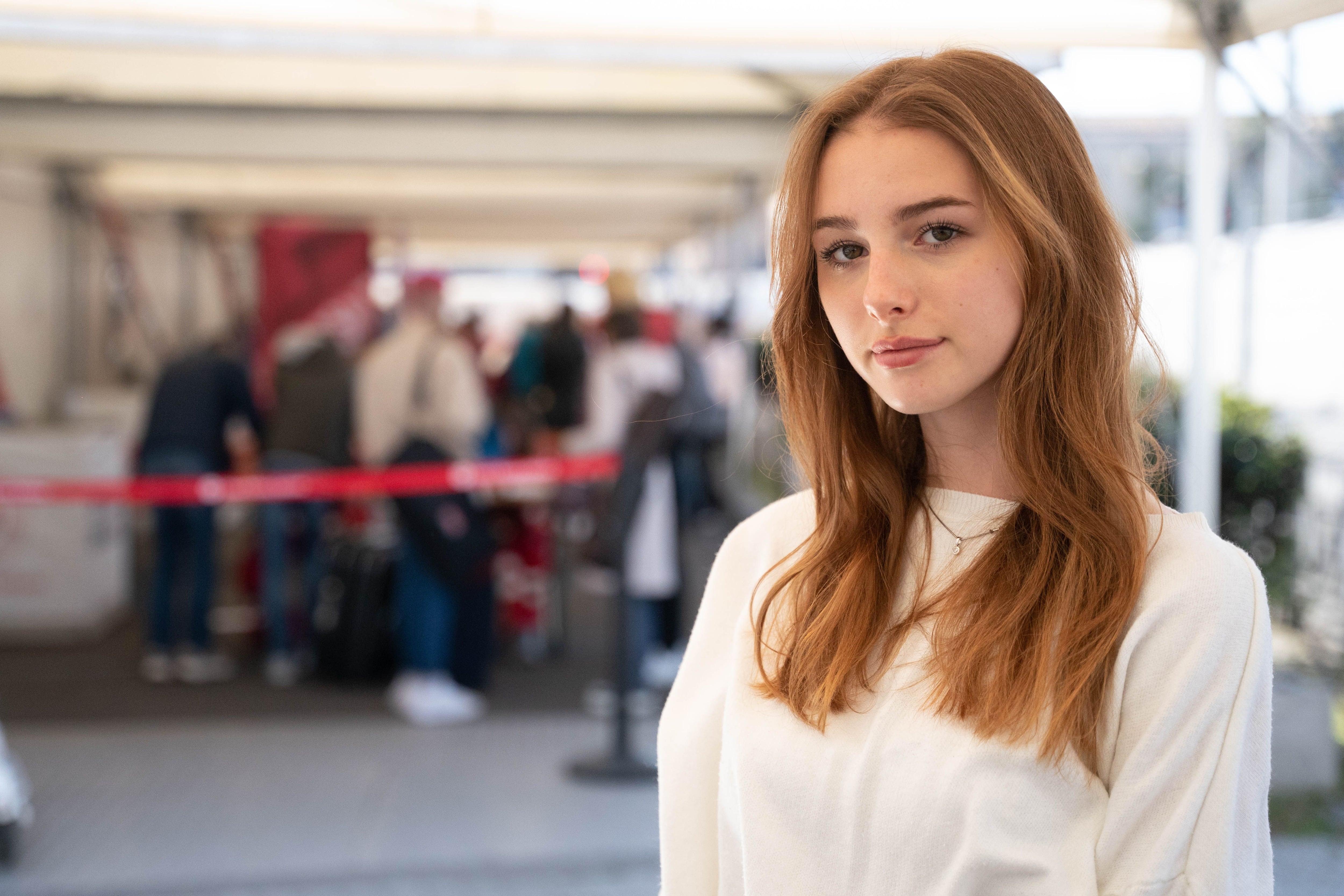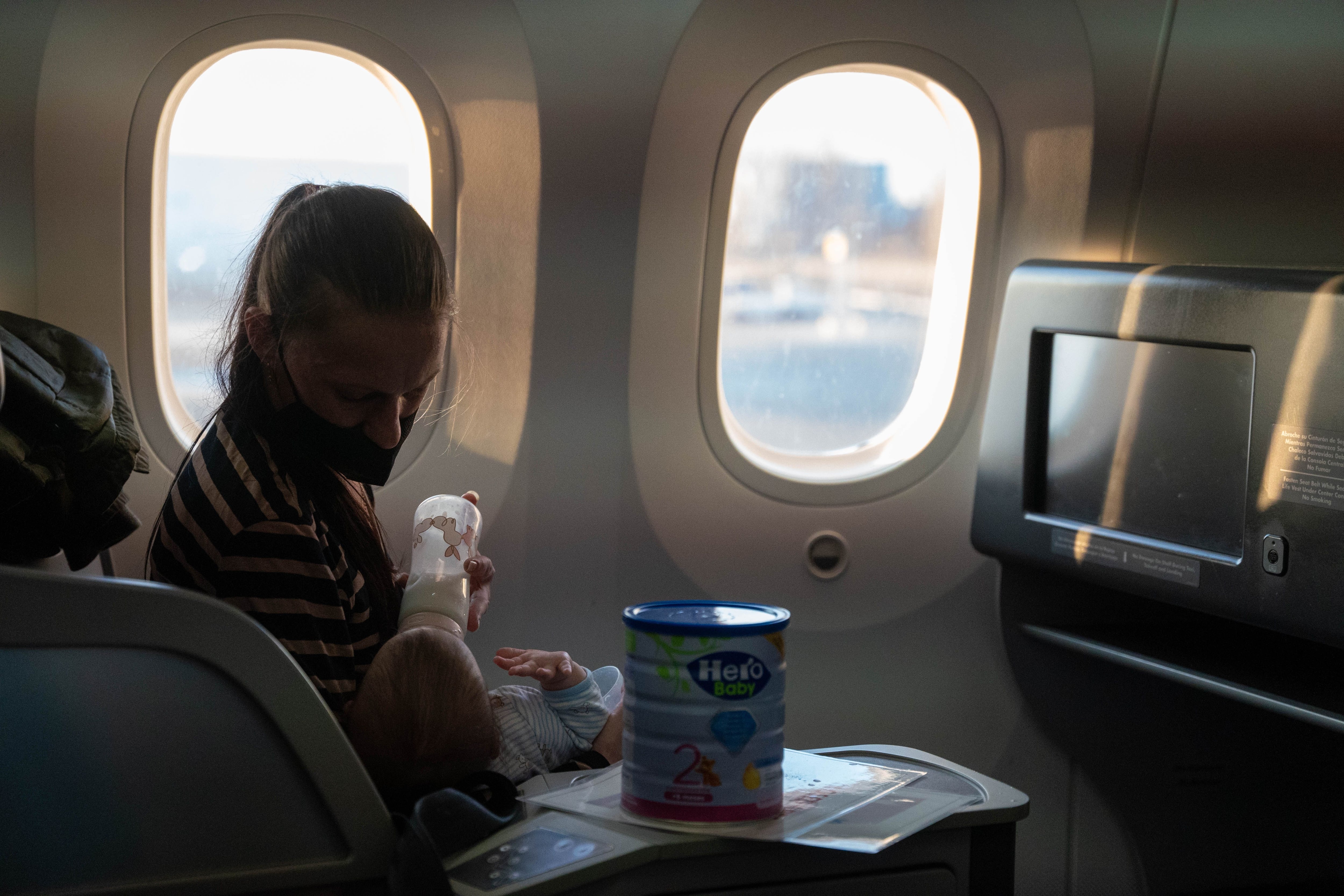
(From Rome, special envoy) Yana is quiet and looks at her cell phone. He keeps it in his pocket but after 10 seconds he takes it out and looks at it again. She keeps it and seems resigned. He's waiting in line to get tested for COVID-19. It is located in Rome, on the square in front of Termini Train Station. She is one of dozens of Ukrainians who go to Italian Red Cross tents to get vaccinated, get PCR tests and receive health guidance. There are tens. And they come and they come.
She's only 16 years old but her size makes her look bigger. She is betrayed by a soft and sweet voice, frightened eyes and a shyness that seems to dissipate when she poses for a photo. She's so beautiful, and so sad. She's a teenager who escaped the war. Her mother, Natasha, embraces her tenderly. He squeezes it with his whole body.
He is from Rivne and came with his 14-year-old mother and brother as soon as the invasion began. He says he's the one who suffers the most. She's relieved that I'm still small and she was able to come to Rome with them. His dad stayed in Ukraine fighting the invading troops: “I miss him so much, so much.”

Rivne, a city between Kiev and Lviv, was the target of one of the deadliest attacks in western Ukraine since the Russian invasion began. A television tower was bombed on March 14, killing 20 people. And a few hours ago, Russian air forces attacked a military installation of the Ukrainian army in the Rivne region with cruise missiles, according to the Russian Ministry of Defense.
Today, Yana is studying remotely at her Ukrainian school. She does not yet know what she is going to study at the University, but what she is very sure of is that she wants to do it in a Ukrainian faculty. “And I don't know how long this will last. How long will it last? You learn at school that wars last so many years...”
He starts saying something in Ukrainian that doesn't come out in English. It stops. “All we want is peace and for all Ukrainian people to be able to return to their homes. I really miss my country, my home, everything. I never thought you could miss a place so much.”

“My name is Natasha, I'm from Rivne, and I'm sorry but my English is very bad,” her mother says as she takes her daughter by the hand. “I feel really bad. I want to go home.”
Paola Bernieri, delegate of the social area of the Red Cross in Rome, says that of all the Ukrainian refugees arriving in Italy - she has already received more than 50,000, according to a count by the Ministry of the Interior - most are women with children, like Natasha and Yana.
Mother and daughter are staying with family friends more than three weeks ago, like most of the refugees who arrived in Rome since February 24 and during the first weeks of invasion. They are very grateful for their hospitality at this time, but their homeland calls them every moment. “I cry every day,” Natasha says.

She thinks about her husband all the time. All day long he watches unavoidable images these days of houses torn to pieces, cities entrenched and besieged, hospitals that have been bombed and pregnant women running down stairs away from the rubble clutching their bellies. Dead soldiers. Ordinary men who put the rifle on their shoulders. Obliged or out of pride. Yeah, she thinks about her husband all the time.
“I wonder what the point of all this is. We escaped, but we leave incomplete, behind is all our life, our things, our mothers, our fathers, our husbands and children. Really, what is the point?”
Franco Fafasuli: Photos
Keep reading:
Últimas Noticias
Debanhi Escobar: they secured the motel where she was found lifeless in a cistern
Members of the Specialized Prosecutor's Office in Nuevo León secured the Nueva Castilla Motel as part of the investigations into the case

The oldest person in the world died at the age of 119
Kane Tanaka lived in Japan. She was born six months earlier than George Orwell, the same year that the Wright brothers first flew, and Marie Curie became the first woman to win a Nobel Prize

Macabre find in CDMX: they left a body bagged and tied in a taxi
The body was left in the back seats of the car. It was covered with black bags and tied with industrial tape
The eagles of America will face Manchester City in a duel of legends. Here are the details
The top Mexican football champion will play a match with Pep Guardiola's squad in the Lone Star Cup

Why is it good to bring dogs out to know the world when they are puppies
A so-called protection against the spread of diseases threatens the integral development of dogs




